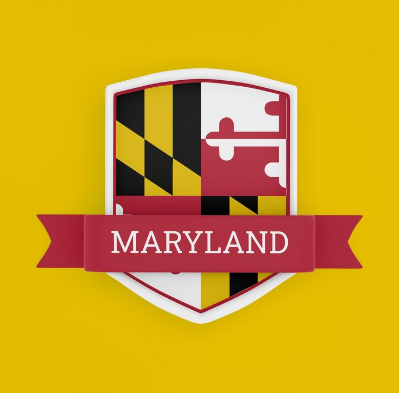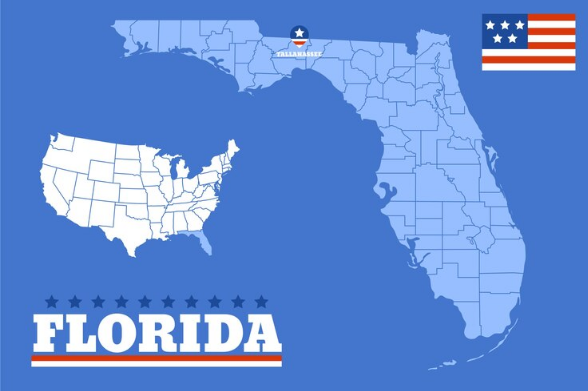Dyslexia Friendly Schools In Michigan

Dyslexia, which is pretty common, makes dealing with language a bit of a struggle. Some experts say that around 5 to 10 percent of people grapple with it, while others say it might be as high as 17 percent who show signs of having a tough time with reading.
Here's the thing: individuals with dyslexia don't just grow out of it like a pair of old sneakers.
However, there are ways, like special teaching methods and clever strategies, that can help them get better at reading and handle the challenges that come with it.
Oh, and the cool part? It doesn't matter how old you are – whether you're a kid or a full-grown adult, you can get tested for dyslexia. Just keep in mind that the tests for adults and kids are a bit different, but they can still give you the scoop on what's going on.
What is the Percentage of Dyslexia Amongst Students In Michigan?
So, here's the scoop on learning disabilities in Michigan: According to the latest stats, about one in every five students there faces some kind of learning challenge. That's roughly 62,000 students identified with learning disabilities during the 2015-2016 school year alone.
Now, here's where it gets interesting. Michigan is slightly ahead of the curve when it comes to special education. About 12.3% of Michigan's public school students receive special education services, just a smidge higher than the national average of 12.2%. It's like they're trailblazing in the world of education. Here’s a snapshot of a data report overview for learning disability in ADAMS TWP SCHOOL DISTRICT in Michigan.
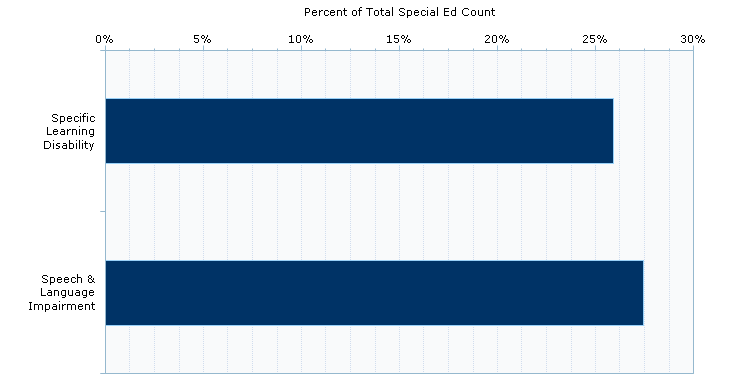
And here's the cherry on top: Michigan schools aren't just sticking to the traditional playbook. They've got alternative education options in place for students who might not be thriving in the regular public school system. So, they're really shaking things up for students who need a different approach.
The Importance of Dyslexia-Friendly Schools
Creating a school that's friendly to kids with dyslexia is like opening up a world of possibilities. In this kind of setup, dyslexic students get to shine by focusing on what they're good at and what they love.
But here's the twist – even though the expectations are high, it's not all about tough, timed tests or loads of text to read. Nope, they get reasonable options to show what they know. When tests can't be avoided, teachers are cool about it. They might give extra time or shorter tests to make things fair.
It all starts with you, the teacher. Many folks think dyslexia is just about flipping letters, but it's a whole lot more than that.
Now, the really cool part is this: you might worry about giving too much attention to a few dyslexic students and inadvertently leaving others behind. But guess what? The stats tell us that about 10 to 15 percent of students could be dealing with dyslexia, and some might not even realise it.
So, when you make those classroom tweaks to help these kids, it's like a win-win for everyone. You create a learning environment where everyone can thrive, and that's pretty awesome.
What Type of School Is Best For a Dyslexic?
The ideal schools are the ones where students can learn without all that unnecessary stress weighing them down.
Plus, these schools are all about recognizing the unique strengths that come with dyslexia, like creativity and thinking big-picture.
If your kid has a special interest, whether it's engineering, chess, music, or anything else under the sun, these schools give them the time and space to chase their passions.
Forget about just hunting for "reading programs" right away because, believe it or not, dyslexic students often thrive when their reading lessons align with their interests.
Now, here's the deal: if your child isn't loving school and isn't coming home all pumped up about learning, it might be time to explore other options. And guess what? That's perfectly okay – even awesome.
You can take your child out of a place that doesn't fit, even if you don't have the next school lined up right away. It's a powerful message to your child that you're in their corner and ready to support them.
Let them take a breather, catch up on some sleep, and in the meantime, you can figure out the next steps together.
Looking for learning difference/dyslexia friendly schools? Here are some must ask questions to help you pick the right dyslexia friendly school for your child.
Before attending your meeting, do a bit of background research. The more you know about dyslexia, teacher education programs and intervention programs, the more targeted you can be with your questions and the better you will understand the answers.
Support Services for Students with Dyslexia in Michigan
First up, we've got Individualized Education Plans, or IEPs for short. These are like personalized roadmaps for students with dyslexia.
Think of it as a plan that's tailor-made to meet their specific learning needs. It spells out what kind of help they'll get, whether it's extra time on tests, special reading materials, or whatever else they need to succeed. IEPs are like the superhero capes of the education world, making sure every student gets the support they deserve.
Then there are specialized reading programs and resources. Michigan has got a toolbox full of these gems to help dyslexic students tackle reading challenges head-on.
These programs are like secret weapons designed to boost their reading skills. They might include special reading apps, expert tutors, or even cool tools and tricks to make reading a breeze.
So, if you're in Michigan and you or someone you know has dyslexia, know that there's a whole bunch of support waiting to help you shine in the classroom.
Here’s the support services available for students with dyslexia in Michigan:
Individualized Education Plans (IEPs):
IEPs are comprehensive documents designed to address the specific needs of students with dyslexia. They're developed collaboratively between parents, teachers, and special education professionals.
These plans outline the student's unique learning goals, the services they'll receive, and any necessary accommodations or modifications to the curriculum.
IEPs can include extra time for reading assignments and tests, access to audiobooks or text-to-speech software, and specialized instruction from trained educators.
Specialized Reading Programs
Michigan offers various evidence-based reading programs tailored to students with dyslexia.
One such program is the Orton-Gillingham approach, a structured and multisensory method proven to be effective for dyslexic learners. It emphasizes phonics, decoding, and reading comprehension.
Schools may also implement programs like Wilson Reading System, Lindamood-Bell, or Barton Reading & Spelling System, all of which focus on building fundamental reading skills.
Also read about Dyslexia Friendly Schools In Washington DC
Resource Support
Michigan's Department of Education provides resources and guidance to educators, parents, and students on dyslexia.
These resources may include information on assistive technology tools such as speech-to-text and text-to-speech software, which can help dyslexic students access written content more easily.
Michigan also encourages schools to develop and maintain dedicated dyslexia resource centers or offer workshops and training to educators to improve their understanding of dyslexia and effective teaching strategies.
Dyslexia-friendly schools in Michigan
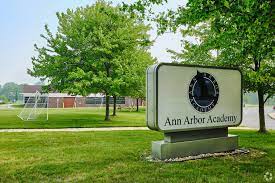
Ann Arbor Academy
At Ann Arbor Academy, they're all about inclusivity. They throw the doors wide open for students with learning disabilities and those with learning differences. It's like a big, diverse family over there.
Now, when it comes to the students, they've got a mix of learning challenges going on. Some might wrestle with reading, math, or writing, while others deal with things like AD/HD, dyslexia, dysgraphia, executive functioning issues, or even autism. And you know what's cool? The students at this academy span the IQ spectrum from gifted to having mild cognitive impairments. It's like a big melting pot of unique minds.
Ann Arbor Academy is a member of the Learning Disabilities Association of Michigan, the International Dyslexia Association, Autism Society of Michigan, and Children and Adults with ADD (CHADD).
But here's the kicker: they don't just see these differences; they celebrate them. They're all about championing the rights of students with diagnosed disabilities and recognizing the strength that comes from having a neurodivergent brain.
It's all about embracing the whole spectrum because, in their eyes, every brain is pretty darn powerful and essential in its own special way.
Brightmont
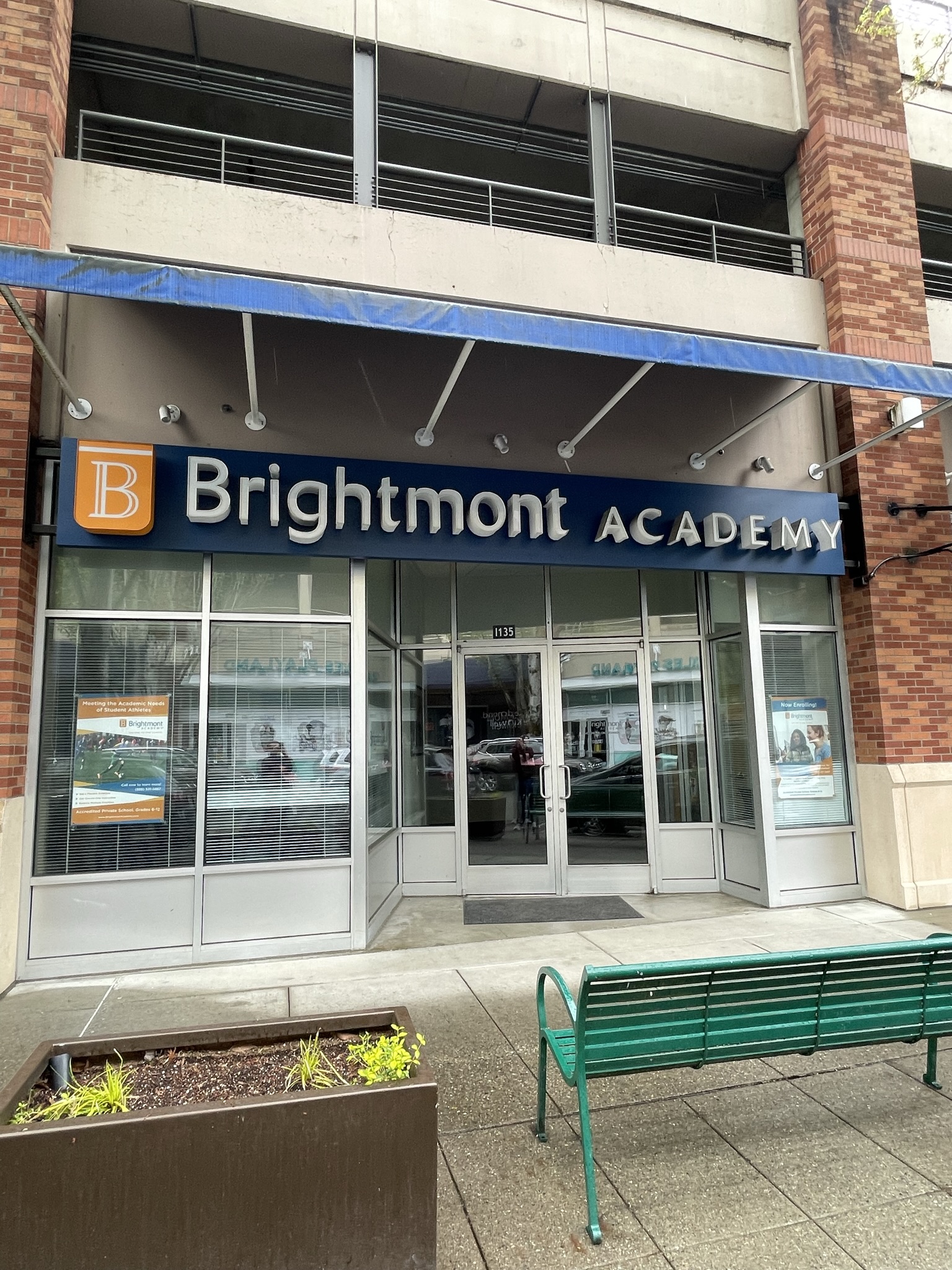
At Brightmont Academy, they've got a recipe for success from 1st to 12th grade. What's their secret sauce? Well, it's all about giving each student a unique, personalized learning experience. Imagine this: one teacher, one student, all the time. It's like a personal education chef whipping up a custom dish for each hungry learner.
Here's the deal: their one-on-one instruction is the star of the show. A highly qualified teacher works closely with a single student, tailoring every lesson to fit their needs like a glove. They've got the whole toolkit:
Understanding: The teacher keeps a close eye on progress and adjusts the instruction as needed.
Learning style: They figure out how each student learns best and roll with it.
Pace: If things get tough, they slow things down; if the student's rocking it, they kick things up a notch.
Motivation: They know how to keep the student pumped and motivated to learn.
Oh, and just so you know, Brightmont Academy is all legit. They're fully accredited, and if you ever need to transfer credits to another school, they've got your back. They offer different options too, whether you're looking for full-time programs, individual courses, tutoring, or skill-building programs. So, it's like a learning buffet where you get to pick what works best for you.
Eton Academy
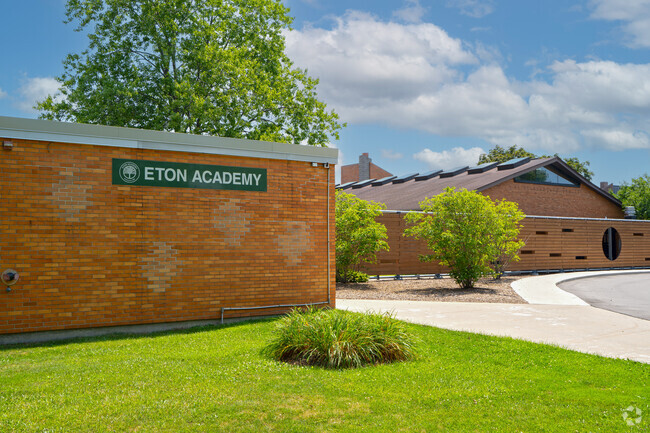
Eton Academy is all about providing a top-notch education for students in grades 1 through 12 who have diagnosed learning differences like ADD, ADHD, and dyslexia.
They're not your typical school – they've got a unique approach that's all about tailoring education to each student's needs.
First things first, they're accredited by respected associations, so you know they mean business. They've even earned the title of a National Exemplary School for their innovative approach to education.
At Eton, they don't believe in sticking to traditional school structures and rules. If something gets in the way of a student's learning, they're ready to change it up.
They've got something called the "Eton Approach," which is all research-based and student-focused. Here's the cool part: students can tap into assistive technologies to overcome learning obstacles.
Plus, they're big believers in exceptional teaching, so their educators get ongoing training and support to ensure every student gets what they need to succeed.
But it's not just about what happens in the classroom. Eton Academy is all about preparing students for success beyond those four walls. They cover all the bases – from reading and math to art, music, and more – and they also help students develop vital learning skills, social smarts, and self-awareness techniques. It's like a one-stop shop for education and personal growth.
Lake Michigan Academy
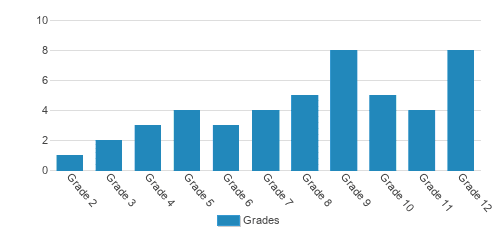
Their mission is crystal clear: they're all about changing lives by giving students with learning differences the tools to reach their full potential. This school in West Michigan is unique because it's entirely dedicated to educating kids with learning disabilities. They've created a warm and supportive environment where students can thrive.
But here's the cool part – they don't just see labels; they see the unique gifts that each student brings to the table. And in the classroom, it's all about a cozy 8:1 student-to-teacher ratio, ensuring that every student gets the attention and customized curriculum they need to build self-confidence and succeed in their educational journey. It's like a personalized roadmap to help these students shine and grow.
Leelanau School
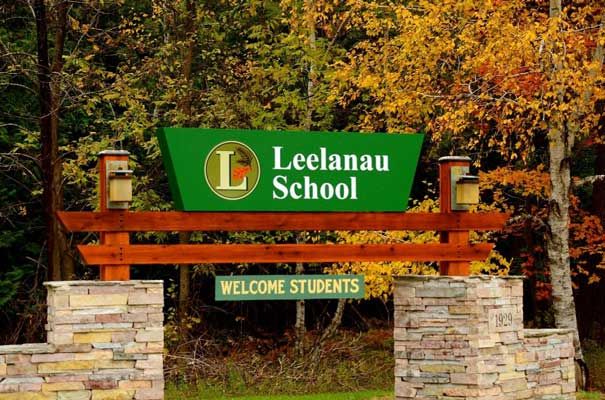
The Leelanau School is all about creating an educational experience like no other. They cater to students in grades 9-12, offering a unique blend of integrated learning support, personalized attention, small class sizes, and a strong focus on overall well-being.
Their mission is simple yet powerful: to help students uncover and nurture their strengths as both learners and responsible citizens. The dedicated faculty at The Leelanau School are on a mission to create an environment where students not only learn but also fully embrace their identity as learners, no matter their unique learning styles. It's like a place where individuality and growth take center stage.
Legislation and Policies in Michigan
Recently, the state Senate in Michigan made some moves in the world of education by passing a set of bills. These bills put a spotlight on dyslexia, a condition where folks struggle with basic reading skills, like sounding out words.
So, what's the scoop with these bills? Well, they've got some key features. First off, by the school year 2024-25, districts will have to screen all K-3 students for dyslexia, using tests they usually give anyway.
If students are identified with reading challenges, districts will step in with interventions and give parents the heads up.
The Michigan Department of Education is also in on the action. They're making sure that teachers who work with young readers will get the lowdown on helping dyslexic students by the 2026-27 school year.
They're also cooking up a handy guide about dyslexia and forming a committee to keep it up to date.
But here's the kicker: if teacher prep programs want to keep their certification game strong, they've got to offer dyslexia-specific instruction by 2023, or else they're out of the club.
Some education bigwigs in Michigan argue that schools are already supposed to ID and support students with learning hiccups like dyslexia, but these new bills are adding some extra oomph to make sure that happens.
Alright, let's dive into the nitty-gritty of things for folks with dyslexia or other learning challenges. There's this federal law called the Individuals with Disabilities Education Act, or IDEA for short.
It's like a superhero cape for you because it sets the rules for how students with learning disabilities, like dyslexia, should be educated.
IDEA basically ensures that your state, working through your local school district, gives you what's called a Free and Appropriate Public Education, or FAPE. In simple terms, it means you're entitled to a free education that's tailored to your specific needs, thanks to IDEA.
Now, while IDEA lays down the big rules, each state can kind of do its own thing as long as they stick to the core standards. In Michigan, they have their own Special Education Act, known as Public Act 451.
What's cool is that Michigan goes a step further, providing educational services to students with disabilities up to the age of 26, whereas IDEA sets the limit at 21.
Michigan even looks out for the littlest ones, serving infants and toddlers under 3 who might be at risk for disabilities. So, it's like a state-level boost to IDEA to make sure everyone gets a shot at a great education.
Teacher Training and Professional Development
Michigan recognizes the importance of training teachers to work effectively with dyslexic students. The state has made efforts to ensure that educators receive proper training and ongoing professional development in dyslexia-specific strategies and interventions.
This training equips teachers with the knowledge and skills needed to identify and support students with dyslexia effectively.
Michigan places a strong emphasis on providing comprehensive support services for students with dyslexia. These services encompass personalized education plans, specialized reading programs, valuable resources, and teacher training.
The goal is to empower students with dyslexia to thrive academically and develop the necessary skills to overcome reading challenges.
If you or someone you know is in need of these services, reaching out to your school or the Michigan Department of Education can be a great starting point to access the support you need.
Conclusion
Dyslexia is a common condition that affects a significant portion of the population, with estimates ranging from 5 to 17 percent. It's essential to understand that dyslexia doesn't magically disappear over time. Instead, it requires dedicated efforts and support to help individuals overcome reading difficulties.
Fortunately, there is hope in the form of specialized teaching methods and creative strategies designed to improve reading skills and empower those with dyslexia to navigate the world of language more effectively. So, while dyslexia may present challenges, it's a journey that can be met with resilience, learning, and progress.
For more related content, take a look at How many children in America have dyslexia


